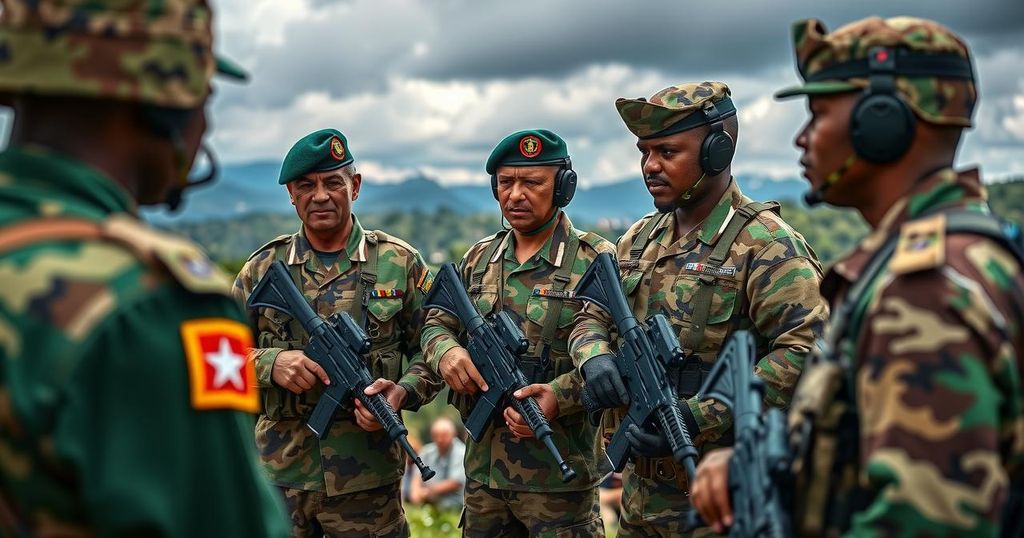Russian Military Instructors Deployed to Enhancing Security in Equatorial Guinea

Russia has sent about 200 military instructors to Equatorial Guinea to enhance the security of President Teodoro Obiang Nguema Mbasogo and train elite security units. This initiative also involves potential contributions from Belarusian forces and aims to secure the future of the President’s son, widely viewed as a possible successor. Additionally, Russia seeks to bolster its influence in Central and West Africa amidst existing operations by Russian mercenaries supporting local regimes.
Recent reports indicate that Russia has dispatched approximately 200 military instructors to Equatorial Guinea to bolster the security detail of President Teodoro Obiang Nguema Mbasogo. These Russian personnel will specifically train elite security forces tasked with safeguarding the President. Furthermore, it is anticipated that military personnel from Belarus and members of the Russian airborne divisions may also be integrated into this initiative. A significant aspect of this mission is to provide protection for Teodoro Nguema Obiang Mangue, the President’s son, who is viewed as a potential successor and is a prominent figure in the nation’s economy. This move has sparked speculation among experts regarding Russia’s intentions to amplify its influence within Central and West Africa. Observers have noted that, in Equatorial Guinea, numerous Russian mercenaries are already operational, assisting in the reinforcement of military regimes and combatting insurgent threats. President Teodoro Obiang Nguema Mbasogo has maintained his position since 1979, after seizing control in a coup, and his administration has often been characterized by controversies over governance and human rights violations.
The deployment of Russian military instructors to Equatorial Guinea is situated within a broader context of geopolitical strategy aimed at establishing Russian presence and influence in Africa. Equatorial Guinea’s strategic location and its historical ties with Russia align with Moscow’s interests in expanding its reach in regions that have been traditionally dominated by Western powers. The current government, led by President Obiang, has been in power for over four decades, and recent actions signal a potential consolidation of his regime’s security through foreign military partnerships. This development reflects a growing trend where nations seek to collaborate on security matters, often in regions with unstable governance.
In conclusion, the dispatch of Russian military instructors to Equatorial Guinea appears to serve multiple purposes, ranging from enhancing the security of the President and his heir apparent to strengthening Russia’s geopolitical influence in Africa. This strategic partnership is indicative of a larger pattern in which foreign military entities engage with regimes seeking stability amid domestic threats. As such, the situation in Equatorial Guinea is emblematic of the shifting dynamics of international relations and military cooperation in the region.
Original Source: 112.ua






